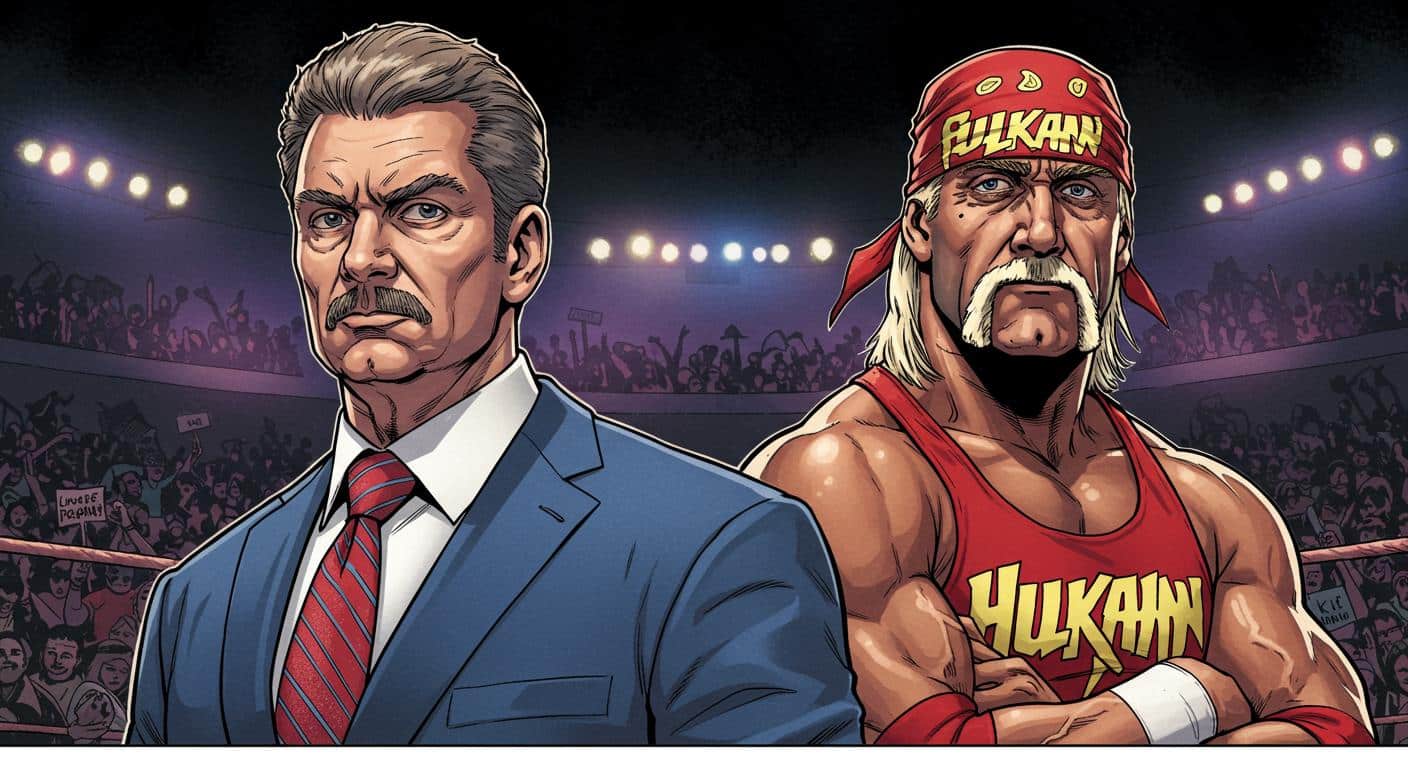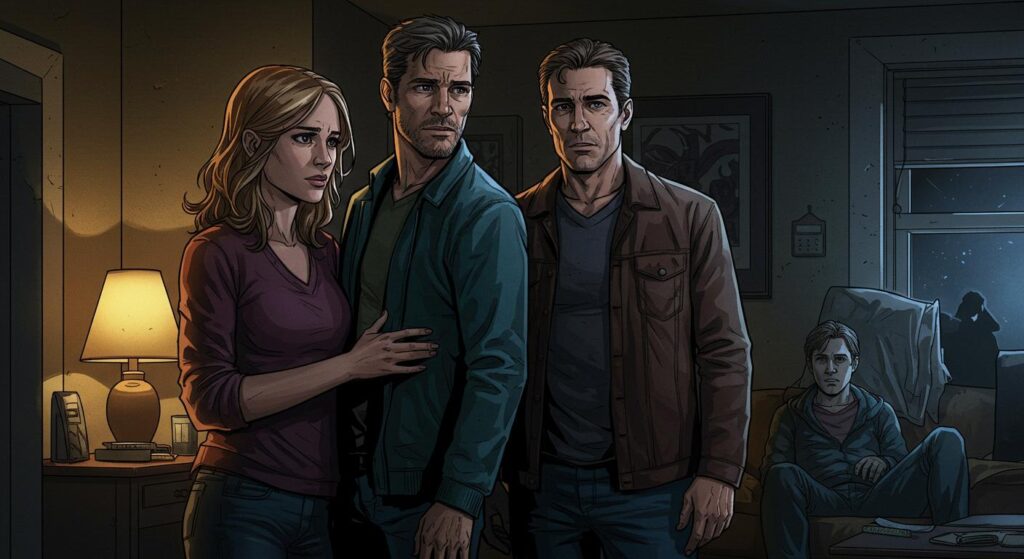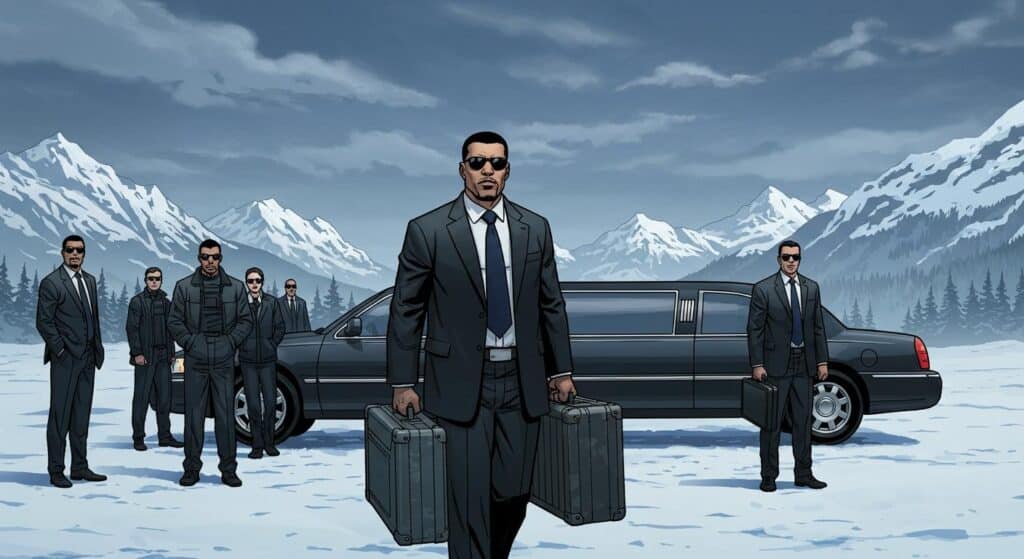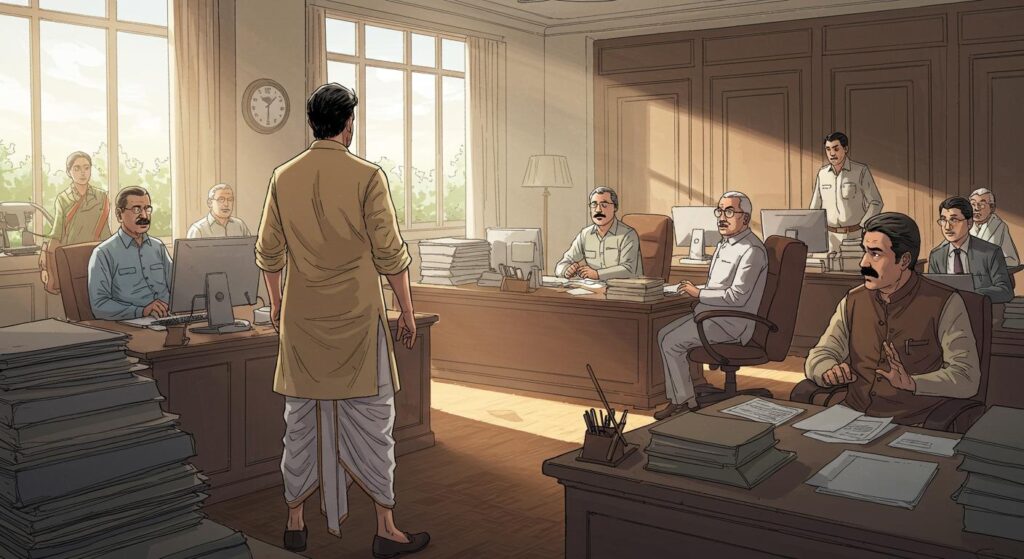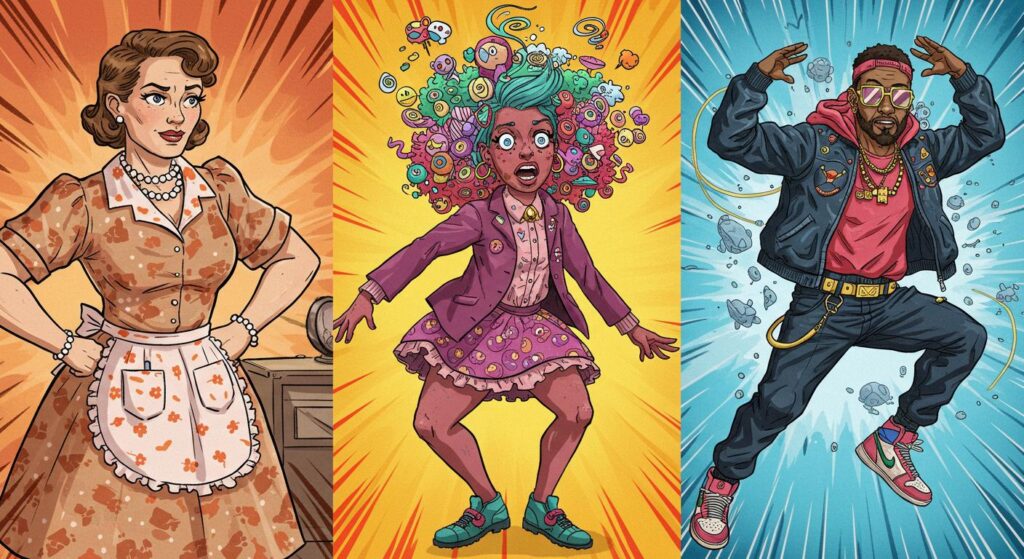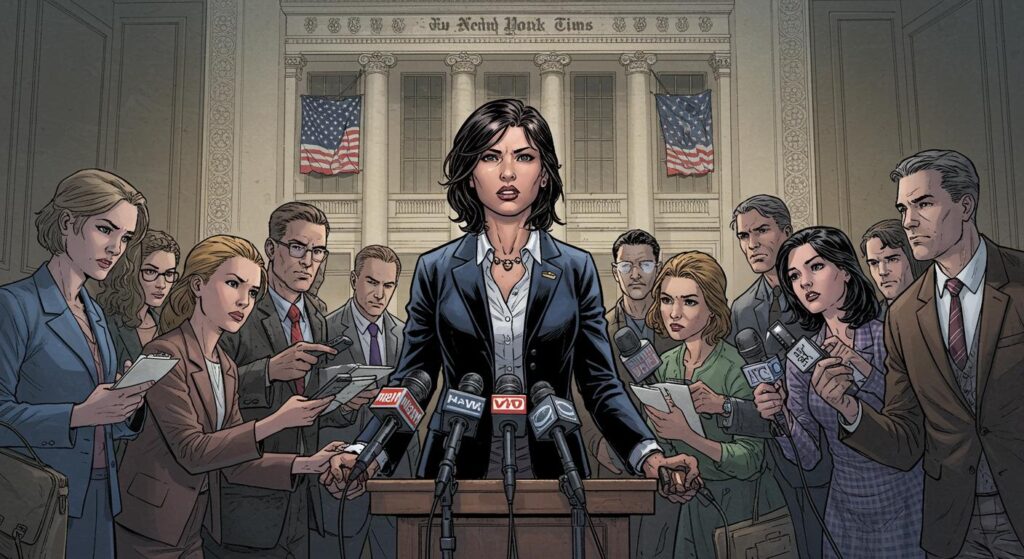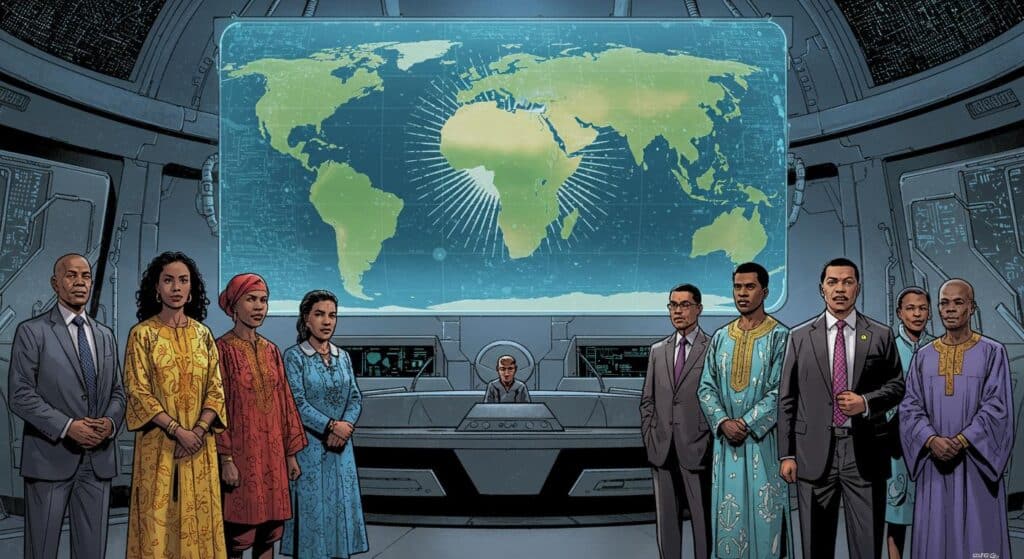In the endlessly bizarre chronicles of professional wrestling, there are few spectacles quite as uniquely human as watching powerful people try to clarify the legacy of their most famous stars. Take Vince McMahon, for example—whose statements this week about Hulk Hogan’s infamous scandal sound like they were workshopped in the back room of a philosophy seminar, only with more hair gel and fewer footnotes.
As Fightful reports, McMahon appeared on the Fox special “TMZ Presents: The Real Hulk Hogan” and attempted to thread a rhetorical needle so fine you’d need a magnifying glass and a librarian’s patience to spot the actual answer. Addressing the well-documented incident in 2015—when a tape surfaced of Hogan using racist language and self-identifying as “racist to a point”—McMahon stated, “He wasn’t racist. He said some racist things.”
It’s a distinction that feels less like an explanation and more like a verbal limbo contest. How low can you bend before you simply fall over?
Vince, the Archivist (of Selective Memory)
WrestlingNews.co dives into the sequence of events that followed the leak and resulting public outcry. McMahon described hearing the comments as “unforgivable,” recalling that he was “agasp, ‘What happened?’” and that the behavior was not like the man he claimed to know. When the scandal broke, WWE rushed to distance itself, scrubbing Hogan from the Hall of Fame—“As soon as it happened, obviously, the company didn’t have anything to do with him anymore. We took him out of the Hall of Fame. You just don’t do those things,” McMahon recounted, per WrestlingNews.co.
Yet, like any wrestling storyline worth its pyro budget, there was a comeback. By 2018, Hogan was quietly reinstated. McMahon framed the decision as one based on character rather than language: “I knew he wasn’t racist. I’ve been with him for so many years. He wasn’t a racist. He said some racist things. He should pay for that, and he did. In the end, I think everyone saw the real Hulk Hogan, Terry Bollea, and they felt, ‘Wait a minute, this guy doesn’t act like a racist. He’s not a racist.’ We all make mistakes. That was a big one, but he wasn’t a racist.” The outlet details how, despite the fallout, WWE’s top brass leaned heavily on the narrative that actions in private didn’t define the man they saw in the locker room.
F4WOnline also notes that this interview marked McMahon’s first major public appearance since resigning from TKO amidst his own legal controversies. The outlet recounts that McMahon, referencing his decades-long association with Hogan, insisted he never considered the wrestler truly racist, even as he called Hogan’s remarks “a big mistake.” The cyclical wrestling tradition of redemption and return is on full display—a fascinating phenomenon for any archivist who likes their public apologies with a side of historical déjà vu (F4WOnline).
Lines in the Linguistic Sand
To outsiders, this all might look like little more than a corporate crisis playbook in action. Yet, as eWrestlingNews highlights, the sense of “moving on” was far from universal within the wrestling community. The documentary included reflections from Mark Henry, himself a Hall of Famer, who said of Hogan’s words: “He said, in his words, that he was a racist. Why would I sit here and try to defend somebody that tells you who they were? It hurt. It hurt. I grew up watching the dude. I used to love that dude. I wanted to be like him. It hurts.”
Henry went so far as to propose a path to meaningful redemption, suggesting Hogan embark on a Black college tour and offer honest, public apologies—advice Hogan chose not to follow on counsel from others. Henry’s perspective highlights a broader truth: the wrestling industry, for all its fondness for second chances, sometimes lacks the imagination (or willingness) to script genuine contrition into its reality.
Legacy Maintenance: Wrestling’s Real Main Event
One can’t help but notice the contrast between the elaborate, fully scripted turns in the wrestling ring and the real-life somersaults performed in the face of controversy. According to WrestlingNews.co, the Hogan documentary itself wrestled with this complexity—devoting airtime to both Hogan’s immense contributions to sports entertainment and the lingering tensions around his publicly revealed language.
What fascinates me from an archival point of view is the rhetorical duct tape applied here. There’s a recurring wrestling motif: “He made a mistake, but that’s not who he was.” If it works for heels-turned-faces and sudden alliances, perhaps it’s no surprise to see it pressed into service offscreen. But what is the value of an apology, or a “mistake,” if the consequences are so quickly redirected through a more comfortable lens? If someone says, in their own words, “I’m racist, to a point,” yet is redeemed because he “doesn’t act like a racist” around the right people—how many layers of showmanship does that add to one man’s legacy?
From the historian’s shelf, there’s something strangely poetic in watching those who curate the past (and the brand) scramble for the right words—especially in a business where words and legacies can be rewritten with the change of a script. The question is less about Hogan, McMahon, or wrestling as entertainment, and more about how we narrate forgiveness itself. How much is about actual growth and how much is about resuming business as usual when the cameras pan away?
Is this just the wrestling world’s way of making peace with its own unscripted moments—by finding new words, new labels, and new ways to dodge the uncomfortable truth? Or does the elaborate wordplay simply document, for future file cabinets, that even the biggest legends sometimes need a little help with their storyline?
For anyone who’s ever shuffled through boxes in the back room searching for a clear answer, semantic squirming might feel suspiciously familiar.

